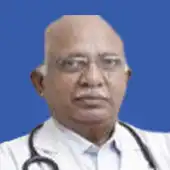A slow heart rate is when the heart beats fewer than 60 times per minute. Various factors, including underlying heart disease, certain medications, or other medical conditions, can cause bradycardia. Symptoms of a slow heart rate can include fatigue, dizziness, shortness of breath, or fainting. Treatment options depend on the underlying cause and may include medication, lifestyle changes, or medical procedures.
| Causes | Heart disease, medication side effects, electrolyte imbalances |
|---|---|
| Remedies | Caffeine intake, exercise, avoiding alcohol |
| Preventive Options | Maintaining a healthy diet, regular exercise, monitoring heart rate |
| Treatment Options | Pacemaker implant, heart transplant, medication |
| Specialist | Cardiologist |
A slow heartbeat, or bradycardia, is a condition in which the heart beats too slowly. A healthy adult typically has a resting heart rate of 60-100 beats per minute. A slow heart rate is defined as less than 60 beats per minute. Various factors, including aging, heart disease, medications, and other medical conditions, can cause bradycardia. Symptoms of a slow heartbeat comes along with fatigue, shortness of breath, drwosy, dizziness, fatigue and chest pain. In some cases, bradycardia may not cause any noticeable symptoms. The treatment for a slow heartbeat depends on the conditions to prevent the severity of the symptoms. In some cases has been seen that, medications may be prescribed to regulate the heart rate. Surgery or implantable devices may be recommended in more severe cases to manage the condition.
A slow heartbeat, also known as bradycardia, is a condition where the heart beats slower than normal. Here are some examples of conditions where a slow heartbeat may come along with other symptoms are given in the following.
A slow heartbeat, also known as bradycardia, can take on several different forms are mentioned in the table.
| Types of slow heartrate | Description |
| Sinus bradycardia | It occurs when the heart's natural pacemaker and that are tooo slow are given in the following. |
| Atrioventricular block | It occurs when electrical signals from the atria are delayed or blocked |
| Sick sinus syndrome | Sinus node alternates between sending electrical signals too slowly and too quickly |
| Bradycardia-tachycardia syndrome | Heart alternates between slow and fast rhythms |
| Congenital heart block | The electrical signals in the heart are disrupted before birth |
Here are some medical conditions that can cause a slow heartbeat
Bradycardia is a condition where the heart beats slower than the normal rate, which is usually below 60 beats per minute. It can be caused by many factors, including aging, certain medications, hypothyroidism, or heart disease. Bradycardia may cause symptoms such as dizziness, fatigue, and shortness of breath. Treatment depends on the underlying cause.
Hypothyroidism is a condition where the thyroid gland doesn't produce enough thyroid hormone. It can cause various symptoms, including fatigue, weight gain, and a slow heart rate. The slow heart rate is due to a decrease in the metabolic rate, which can affect the heart's electrical activity. Treatment involves hormone replacement therapy.
Obstructive sleep apnea is a condition where the airway is partially or completely blocked during sleep, causing breathing to stop and start repeatedly. It can lead to a decrease in oxygen levels, which can cause the heart rate to slow down. Treatment involves using a continuous positive airway pressure (CPAP) machine to keep the airway open during sleep.
Heart block is a condition where the electrical impulses that regulate the heartbeat are slowed or blocked, leading to a slower heart rate. It can be caused by aging, heart disease, or medications. Symptoms may include fatigue, dizziness, and fainting. Treatment may involve medication or implantation of a pacemaker.
Lyme disease is a bacterial infection that is transmitted by ticks. It can cause various symptoms, including fatigue, joint pain, and a slow heart rate. The slow heart rate is due to an inflammation of the heart muscle, which can interfere with the heart's electrical activity. Treatment involves antibiotics.
Hypothermia is a medical emergency where the body temperature drops below normal levels. It can cause various symptoms, including shivering, confusion, and a slow heart rate. The slow heart rate is due to a decrease in metabolic rate, which can affect the heart's electrical activity. Treatment involves rewarming the body, either by using blankets or immersion in warm water.
The diagnosis of slow heartbeat, also known as bradycardia, involves a comprehensive medical evaluation that may include in the following.
Slow hear beat can be treated in multiple ways, including medications, surgery, and home remedies. Each treatment option has its own benefits and drawbacks, and the best course of action will depend on the underlying cause and individual health needs.
Slow heartbeat, or bradycardia, can be treated with various medications that increase the heart rate. Here are some such drugs
Atropine is a medication that can increase the heart rate by blocking the action of the vagus nerve, which slows down the heart. It is often used in emergency situations to treat bradycardia or as a preoperative medication.
Epinephrine, also known as adrenaline, is a medication that can increase the heart rate by stimulating the beta receptors in the heart. It is often used in emergency situations, such as cardiac arrest or anaphylaxis.
Isoproterenol is a medication that can increase the heart rate by stimulating the beta receptors in the heart. It is often used in emergency situations or during diagnostic tests that require an increased heart rate.
Dopamine is a medication that can increase the heart rate by stimulating the beta receptors in the heart. It is often used in emergency situations, such as shock or low blood pressure.
Glycopyrrolate is a medication that can increase the heart rate by blocking the action of the vagus nerve, which slows down the heart. It is often used as a preoperative medication or to treat bradycardia. Unlike Atropine, it doesn't cross the blood-brain barrier and doesn't have central nervous system effects.
Surgery for bradycardia may be necessary if medications or other treatments are not effective in increasing the heart rate. Here are some common surgical options for bradycardia
A pacemaker is a small electronic device that is surgically implanted under the skin near the collarbone. It delivers electrical signals to the heart to regulate the heartbeat. A pacemaker can help increase the heart rate and improve symptoms of bradycardia.
Cardiac resynchronization therapy, also known as biventricular pacing, is a type of pacemaker that can help coordinate the contractions of the heart's left and right ventricles. It is used to treat people with heart failure who also have bradycardia.
Ablation therapy is a procedure that uses radiofrequency energy or extreme cold to destroy the heart tissue that is causing the abnormal electrical signals. It can be used to treat some types of bradycardia, such as atrial fibrillation.
In addition to medical treatments, there are several home remedies that can help increase the heart rate naturally. Here are some common home remedies for bradycardia
Regular exercise can help improve cardiovascular health and increase the heart rate. Activities such as jogging, cycling, and swimming are great ways to get your heart rate up.
Caffeine is a natural stimulant that can help increase the heart rate. Drinking coffee, tea, or other caffeinated beverages in moderation can help boost your heart rate.
Certain yoga poses, such as the upward-facing dog and camel pose, can help increase the heart rate naturally. Consult a certified yoga instructor for proper guidance.
Deep breathing exercises can help increase the heart rate by increasing oxygen supply. Take deep breaths for several minutes to help boost your heart rate.
Certain triggers such as cold temperature, overeating, and alcohol consumption can cause bradycardia. Avoiding such triggers can help regulate the heart rate naturally.
It is important to note that home remedies should not be used as a substitute for medical treatment. Consult with a healthcare professional before trying any home remedies or supplements.
Prevention of bradycardia involves avoiding risk factors that can cause or worsen the condition. Here are some ways of prevention
A healthy lifestyle can help prevent various health conditions, including bradycardia. Here are some ways to maintain a healthy lifestyle
Regular Exercise Engage in regular exercise to maintain good cardiovascular health. Exercise helps to increase heart rate and maintain healthy weight, blood pressure, and cholesterol levels.
Healthy Diet Eat a balanced diet consisting of fruits, vegetables, whole grains, lean proteins, and healthy fats. Limit the intake of saturated and trans fats, added sugars, and sodium.
Quit Smoking Smoking can cause various health problems, including bradycardia. Quit smoking to reduce the risk of developing bradycardia and other heart conditions.
If you have an underlying health condition that can cause or worsen bradycardia, it is important to manage the condition effectively. Here are some common conditions that can cause bradycardia
Hypothyroidism Hypothyroidism is a condition where the thyroid gland does not produce enough thyroid hormones. This can cause bradycardia. Treatment with thyroid hormone replacement therapy can help normalize the heart rate.
Obstructive Sleep Apnea Obstructive sleep apnea is a condition where breathing is repeatedly interrupted during sleep. This can cause bradycardia. Treatment with continuous positive airway pressure (CPAP) therapy can help improve breathing and normalize the heart rate.
Certain medications can cause or worsen bradycardia. Consult with a healthcare professional before starting any new medications. Here are some common medications that can cause bradycardia
Beta-Blockers Beta-blockers are medications that are commonly used to treat high blood pressure and other heart conditions. They can cause bradycardia by blocking the action of adrenaline on the heart.
Calcium Channel Blockers Calcium channel blockers are medications that are commonly used to treat high blood pressure and other heart conditions. They can cause bradycardia by slowing down the heart rate.
Regular check-ups with a healthcare professional can help detect and manage bradycardia early. Here are some ways to prepare for regular check-ups
Keep Track of Symptoms Keep a record of any symptoms that you experience, including dizziness, fatigue, and fainting.
Bring a List of Medications Bring a list of all medications that you are taking, including over-the-counter medications and supplements.
Discuss Family History Discuss any family history of heart conditions with the healthcare professional.
By following these prevention tips, you can help reduce the risk of developing bradycardia and other heart conditions.
If you have a slow heartbeat, also known as bradycardia, it is important to see a doctor. The warning signs are given in the following.
If you are experiencing a slow heart rate and are concerned about your symptoms, seeing a doctor for evaluation and reassurance is always a good idea.
If you have slow heartbeat and are concerned about your health, it is important to seek immediate medical attention from a qualified slow heartbeat doctor. A doctor specializing in treating slow heartbeat, such as a Cardiologist, would be the right health professional to consult.
Here is a list of Top verified doctors for slow heartbeat. You can book an appointment with one to start your slow heartbeat treatment today.

Jaslok Hospital, Mumbai
Rs. 2,500 Consult Fees

CARE Hospital, Banjara Hills, Hyderabad
Rs. 1,000 Consult Fees

Indraprastha Apollo Hospital, Sarita Vihar, Delhi NCR
Rs. 1,800 Consult Fees
A hospital can provide various services to help diagnose and treat your slow heartbeat. If you are experiencing slow heartbeat In that case, it is important to visit a slow heartbeat hospital for a proper diagnosis and treatment plan.
Check a list of Top Hospitals for slow heartbeat treatment.
Multi Speciality Hospital
Established in 1918
🛌345 Beds
.png)
Multi Speciality Hospital
Established in 1940
🛌220 Beds

Multi Speciality Hospital
Established in 1947
🛌230 Beds
Frequently asked questions and answers about slow heartbeat.
What causes heart rate to slow down?
Heart rate can slow down due to various factors, such as medications, certain medical conditions such as hypothyroidism or sleep apnea, or natural aging.
Is slow hear beat serious?
Whether a slow heart rate is serious depends on the underlying cause and the person's overall health. In some cases, a slow heart rate may not cause any symptoms or complications and may not require treatment. However, in other cases, it can lead to dizziness, fatigue, fainting, or even heart failure or cardiac arrest.
How do I improve a low heart rate?
If you have a low heart rate, it is important to consult with a healthcare professional for proper diagnosis and treatment recommendations. In some cases, lifestyle changes such as quitting smoking or reducing alcohol intake can help. In other cases, medications or medical procedures such as a pacemaker may be necessary.
Reviews by patients on different.
Anandita
My father went for a health check up alone at Kokilaben hospital. He was doing stess test and he developed Anterior wall Myocardial infarction (Major heart attack). Thanks to immediate attention by Dr. Pravin Kahale and his team who took my father immediately for Emergency angioplasty even though we were at home. In a heart attack, every minute delay leads to damage to heart muscle and has long term consequences of a weak heart. My father had good salvage and early prompt action lead to preserve heart pumping. Dr. Kahale is an excellent doctor. He has very deep knowledge. He writes few but best medications. He also makes us understand complex things in simple language. Our entire family would strongly recommend Dr. Kahale as a cardiolgist who can deliver the best in most complex cardiac issues. He is always accessible to the entire family and is only a phone call/ message away and resolves all the queries. Highly recommended!
Ishwar Devi
Artemis Hospital
<p>My mother had a bad chest pain the other day. We decided to get her regular checkup done and approached Credihealth for the same. After a couple of options, we decided to visit Artemis. The overall process was very smooth. The ECG had some abnormality. So we consulted Dr Kuldeep Arora for it. He is one gem of a doctor. He was very friendly to talk to. Very sensitive to my mothers concerns. He explained all the medical reports including ECG. We gained immediate confidence in the doctor. He advised a few additional tests. Those were done on same day. After seeing those reports, he proposed a treatment plan. Considering my mothers age, it was empathetic for him to tell no to any procedure. He recommended meds for 2 months and told us to come back in between. Friendly, sensitive and empathetic. All in all good experience.</p>
Dr. Bhabendra Nath Kalita
Dr. Venkatesh treated my dad with utmost care. Although my dad & his reports were not in station, he eagerly looked into the Angiogram video (done in a different place) of my father in my mobile and suggesting corrective treatments. He patiently advised me many things and repeated them again & again for my better understanding. The operation was done by Dr. Girish and although it was critical, it was successful. Dr. Venkatesh has visited us many times during our stay at the hospital despite his busy schedule to inquire about the wellbeing of my father. During the follow-up visits, Dr. Venkatesh has examined my Dad with utmost details, gave proper advice, and suggested & changed medicine courses to suit my dad's body as he has high blood pressure & diabetics. I wish him great success in his career and love of his patients.
Credihealth is an online healthcare portal for all your hospital appointments, diagnostic test bookings, ordering medications, or homecare services. If you have any inquiries, our in-house medical experts can help solve them and guide you to the best specialist in the India.